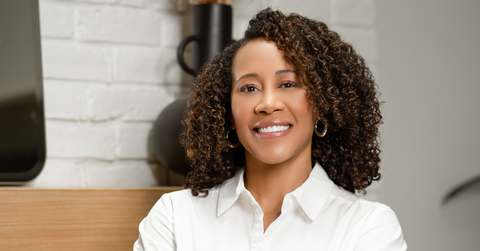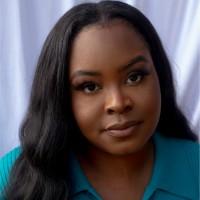Michelle Rankine never imagined she’d become a leader in the in-home care industry. With a PhD and a background in higher education and sports, her career took a turn when her brother suffered a life-changing car accident. This event opened her eyes to the world of caregiving and set her on a path to becoming a successful healthcare executive.
Today, Michelle owns three Right at Home franchise locations, collectively grossing millions over 10 years. Detailing her journey from a hesitant newcomer to a thriving entrepreneur in the caregiving field, Michelle shares her experiences navigating the challenges of the healthcare industry while scaling a business and her vision for expanding access to quality senior care. Her story showcases the power of seeing opportunity in unexpected places.
Her Agenda: Personal caregiving was never a path you planned on being in. How did your brother’s life changing car accident impact your decision to enter the in-home care industry?
Michelle Rankine: Being a resource and helping people has always been my passion. The accident brought light to a career that I never thought of as an option for myself. Although my family has a lot of nurses, I never looked at caregiving as a profession. In my family, you’re either a doctor, nurse or an attorney. That was the expectation.
My brother and I met with the owner of an in-home care franchise that we were considering using. The owner explained with compassion for people and a willingness to learn, anyone can pursue a career in healthcare. I said to myself at that moment, ‘Yeah, I think I can do this.’ Looking back on it, that was a scary realization. I was scared, but I felt moved by the conversation to pursue the caregiving business further. It was a fearless movement for me, making the decision. I felt I was doing the right thing, and I know for sure now it was the right move.
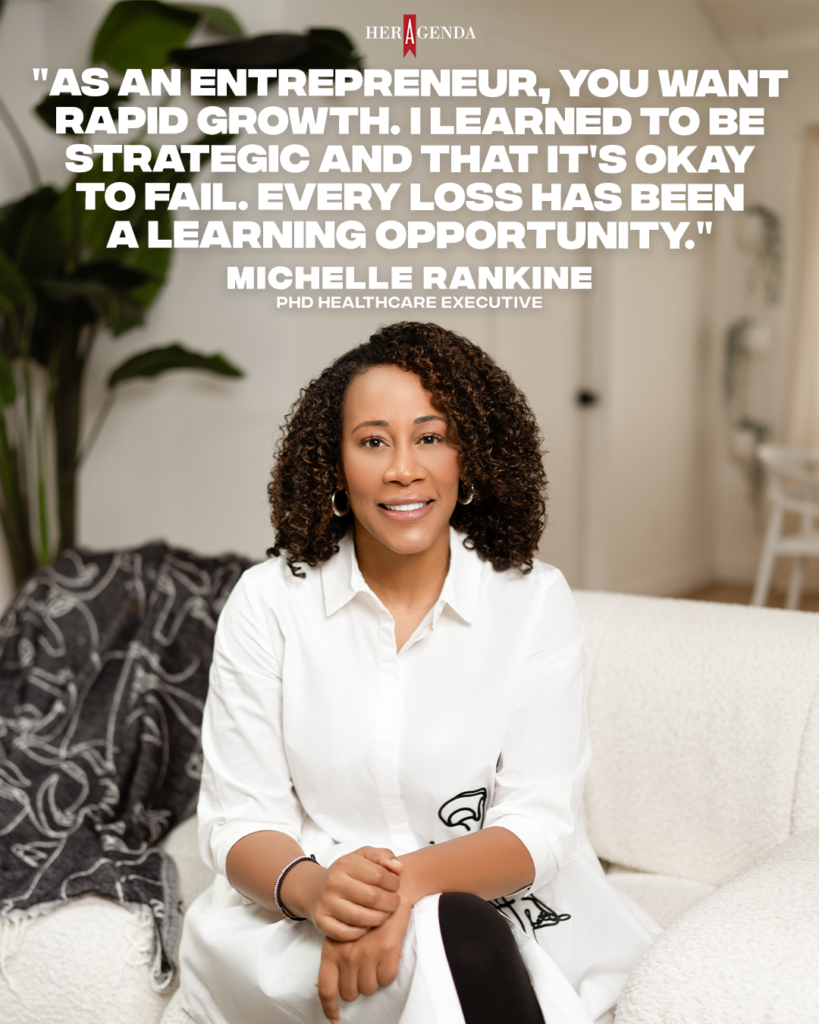
Her Agenda: What led you to choose franchising, and specifically Right at Home, as your way to make an impact in the caregiving field?
Michelle Rankine: I’ve always been adamant on wanting to pursue a franchise.When you do research and you look at businesses you must examine the success and failure rate. I knew I wanted a business that was going to provide me with the model. The success ratio with franchises is greater, and I felt that taking a new leap into something outside of the scope of higher education and sports that I knew well I’m going to need support. It was a no-brainer to make the decision to take this route for myself. When choosing a franchise, I prioritized extensive training and good culture. I asked two key questions:
- Has the franchise been successful?
- What is their process?
Right at Home stood out with their two-week training program, while others only offered a few days. With my first purchase being a resale, I wanted a thorough understanding of the business beforehand.
Her Agenda: Tell us about your journey running your first Right-at-Home franchise location to now owning three successful locations.
Michelle Rankine: Franchises provide coaches as you reach financial milestones. When you’re meeting those milestones, you’re put into a performance group. Those performance groups consist of 10 other owners that are evaluating our business. In addition to your corporate coach the mentors analyze whether your business is scaling and help you think through what’s next, in your business growth. Having the tailored education in the performance group allowed me to think about business differently. Now I am thinking about the territory next to me if it is open and strategizing on when and how I can purchase.
My performance group and coach advised me to scale up, considering where I wanted the business to go. Right now, in my three territories, there’s over 250,000 seniors and I’m only serving 5%. With baby boomers aging, the potential for expansion is significant.
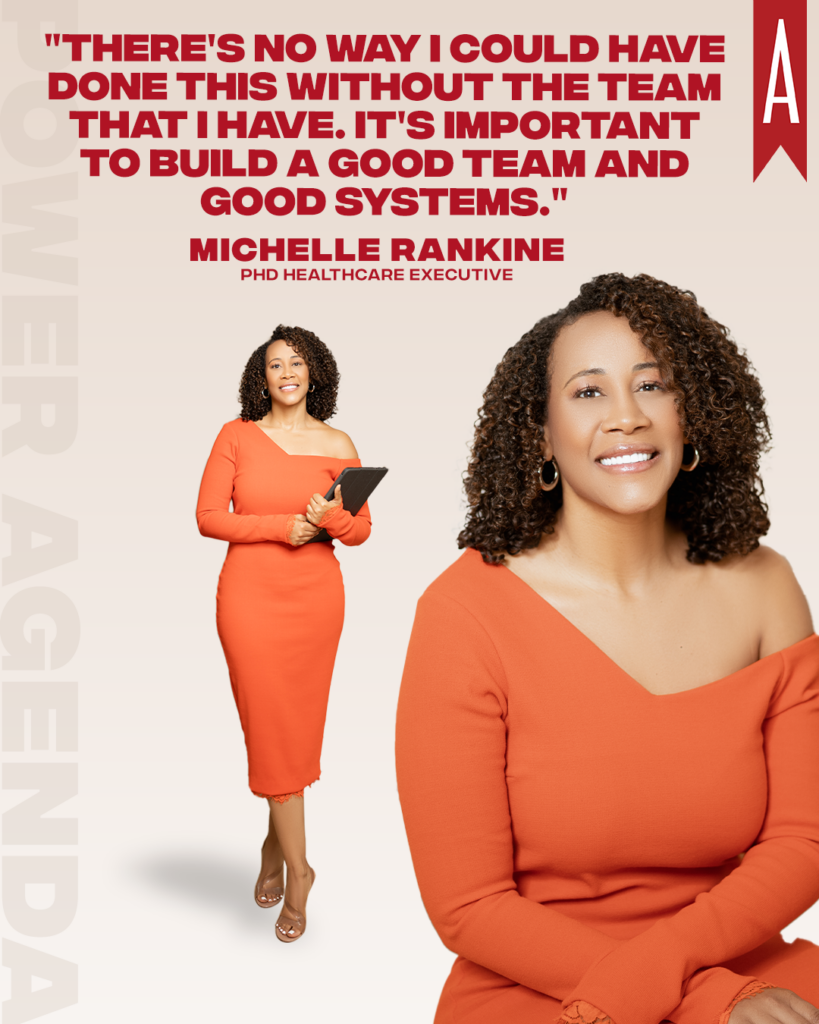
Her Agenda: What challenges did you face in providing care to Black kinless seniors – older adults without close family support – and how have you overcome them?
Michelle Rankine: Earlier on I didn’t identify myself as the owner, I had a lot of hesitation from the community as a whole. When I started my business, I was 29. Being younger serving seniors made navigating the industry difficult when trying to build clientele. Race also played a factor. I was always surprised when families were blatant about their preferences in the physical appearance of potential caregiverswe assigned.
A family informed me that they preferred not to have caregivers with darker skin. Their reasoning was that it might be alarming for their mother when she wakes up. Instead they preferred someone who had a similar skin complexion to their mother. There’s a really good book by Malcolm Gladwell that talks about one of the issues of race, which is the idea of strangers. Having a caregiver in your home is similar to having a stranger in your home for the first time.
I’m constantly reminding clients we’re an equal opportunity employer. We do not discriminate on race, religion or anything for that matter. There is a common issue around trust and caregiving. As I’ve met with families that are needing care for their mother or father, individuals typically believe they can do it on their own. However, I emphasize that whoever we assign for each home is the perfect fit meeting the skill sets, location and personality requirements for the individual patient.
Her Agenda: What is the most significant lesson you’ve learned about yourself while scaling your business?
Michelle Rankine: Patience. As an entrepreneur, you want rapid growth. I learned to be strategic and that it’s okay to fail. Every loss has been a learning opportunity.
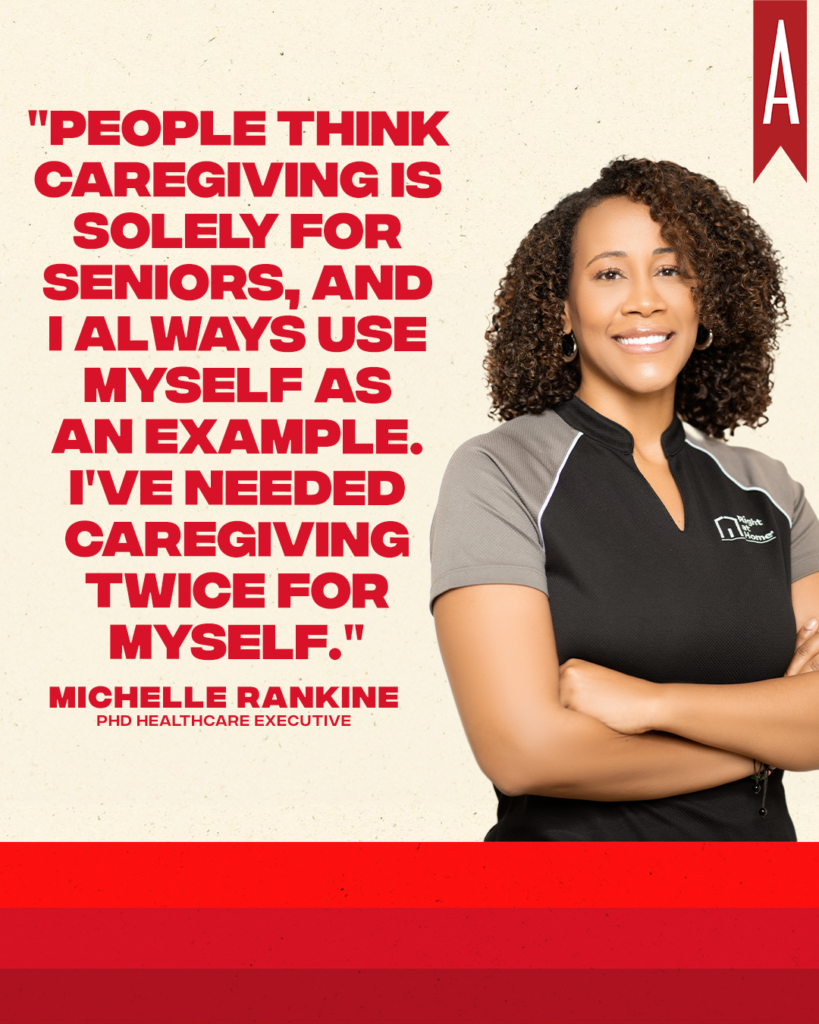
Her Agenda: Your franchises have grossed millions in revenue. What strategies have been key to building a financially profitable business?
Michelle Rankine: Knowing your numbers! When you’re going into franchising, it is important. There’s an expectation by the franchisor that you will be expected to meet. Always watching my gross margin and understanding my business helps me to reach the target market for my margin goals. To now be profitable and gross the revenue that the company has requires being strategic in the market that we’re serving.
Her Agenda: Looking ahead, how do you plan on expanding your impact on senior healthcare access and quality?
Michelle Rankine: Continue solving for how to reach seniors earlier and make them aware of our services.That is the biggest thing. I believe there are a lot of seniors that need assistance, but minimal assistance. Right now, the next step is brainstorming on how we can leverage technology to meet that gap allowing us to start assisting in the home earlier. Seniors are aware that they may need physical therapy or rehab but the idea of caregiving is not something people want, because it is typically associated with a loss of independence.
As a company we want to change the stigma, seniors should have independence and not fear that will be taken away. This has to start with education and that is where I want to begin focusing the business expansion wise in the next couple of years. Starting the conversations earlier and normalizing them too. People think caregiving is solely for seniors, and I always use myself as an example. I’ve needed caregiving twice for myself.
When you have a LASIK procedure you need to have a caregiver to assist you. Typically doctors encourage you to get a family member or friend to help. I’m single, I live in Dallas, and my friends are not readily available to assist me.This barrier gave me an opportunity to share my services with the company completing my procedure. It’s not realistic to not provide caregiving services to patients who may be in need when family support is not an option.
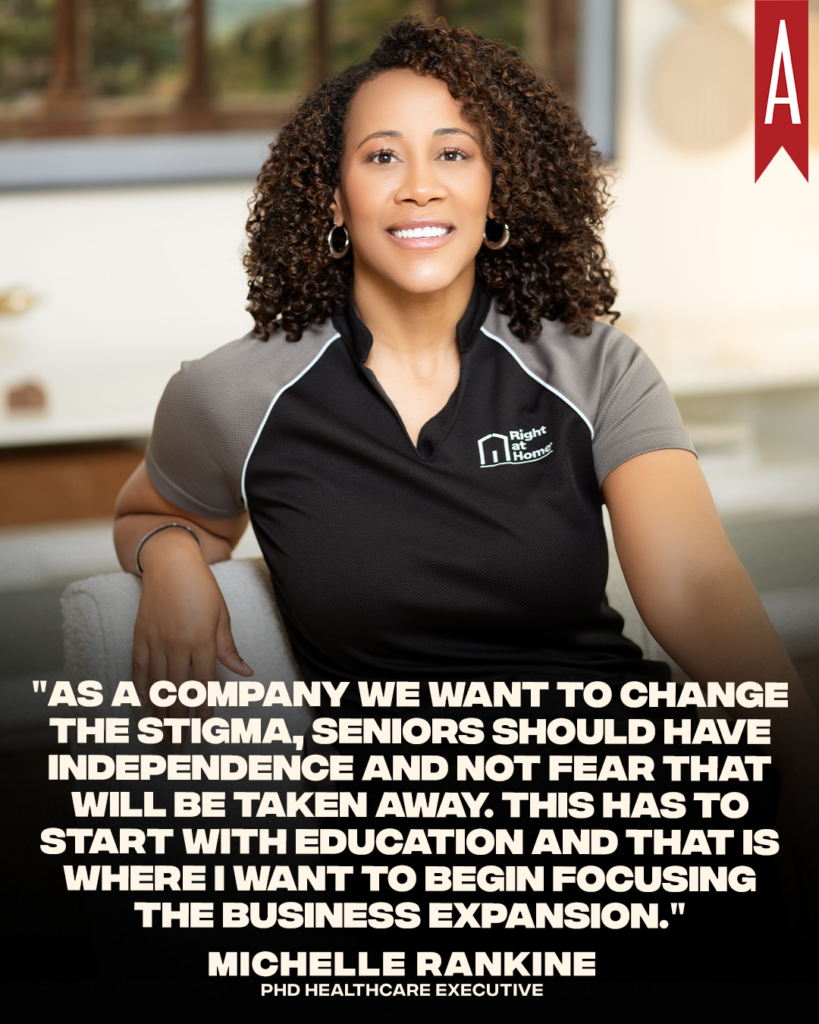
Her Agenda: Do you have a quote you live by that inspires you throughout your entrepreneurship journey?
Michelle Rankine: It’s an African proverb, If you want to go fast go alone, if you want to go far go together. There’s no way I could have done this without the team that I have. It’s important to build a good team and good systems.
[Editor’s note: This interview has been edited for length and clarity.]

